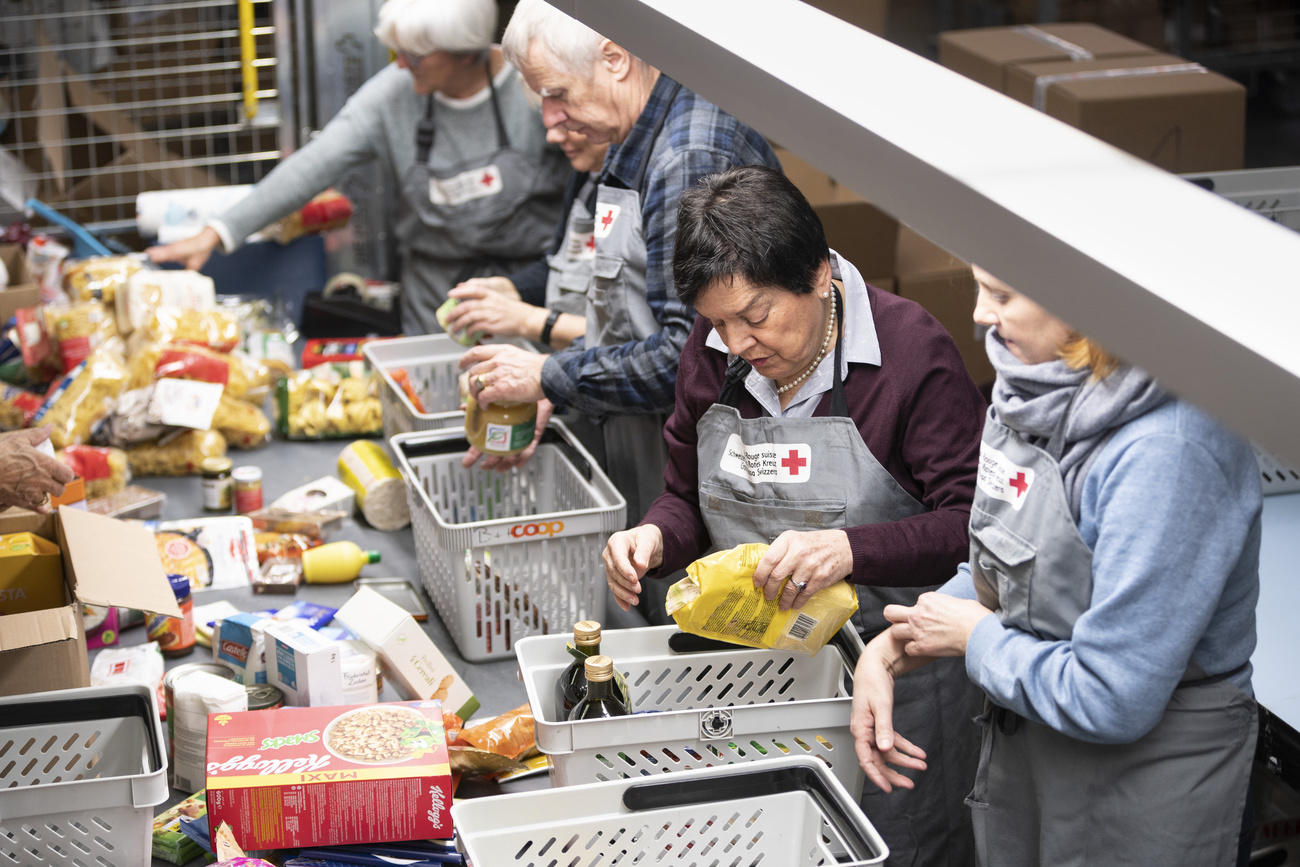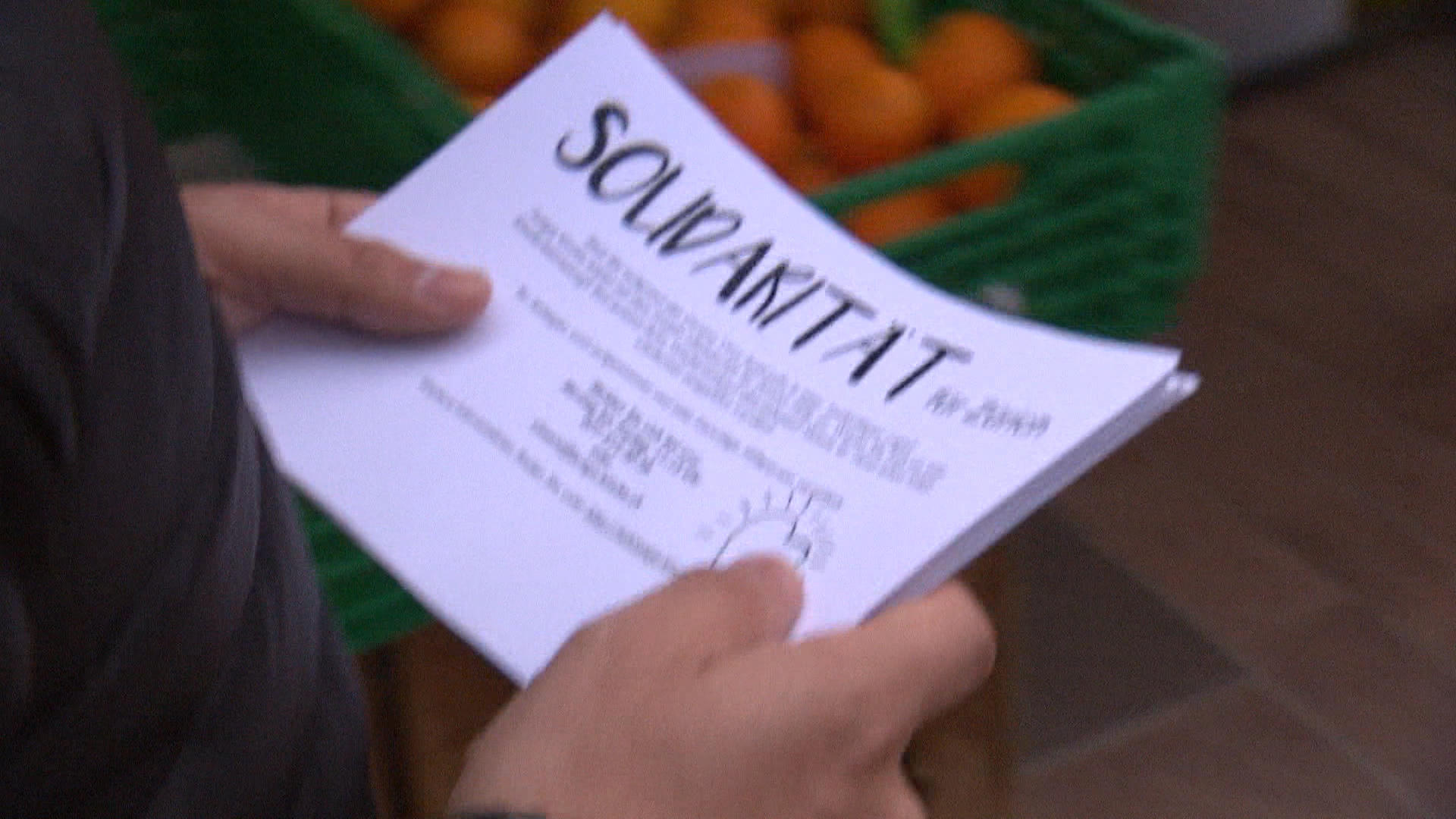
Local solidarity initiatives fight virus fallout

Local aid groups, organised by citizens or charity associations, are popping up in Switzerland in an effort to help those most vulnerable to the threat of the Covid-19 pandemic.
The groups have been appearing for weeks, ever since the numbers infected by the coronavirus began to rise and Ticino became the first canton to impose strict measures.
At first, many of the groups – especially on Facebook – were about offering accommodation for Italian cross-border workers, especially those in the medical or healthcare sector.
Now, hundreds more such informal groups, mainly organised on WhatsApp or Facebook, are offering help to senior citizens across the country, who have been strongly advised to stay at home during the unfolding crisis.
Such vulnerable people are especially in need of practical help – such as with shopping for basic goods – and emotional or communicative support, so as not to become isolated.
One such initiative, Gärn Gschee – Basel HilftExternal link (You’re welcome – Basel helps), enables older people to write a post outlining what they need help with, then others to offer their services. “I’m looking for help collecting an order of 2.6kg of artichokes from the market,” wrote a 74-year-old woman. Soon afterwards, she got it.
The website hilf-jetzt.chExternal link (help now) has gathered as many such initiatives as it could find, organised by locality and with links for those interested in helping. As of March 16 there were some 347 initiatives across Switzerland.

More
Shopping for the elderly in a time of pandemic
Supermarkets call for calm
Other groups have also been calling for solidarity, echoing the call by Swiss president Simonetta Sommaruga in an interviewExternal link published on Sunday in the SonntagsZeitung newspaper.
On Monday, the Swiss Red Cross and the Swiss Public Utility Society launched an app, called “Five up”, which aims to provide a space for the coordination of volunteer groups. They saidExternal link that in contrast to groups organised on social media, the app allows a direct overview of where help is needed and where volunteers are available.
Local chapters of the Red Cross, for example in Basel, have also organised delivery services for people quarantined at home – something they are also considering rolling out in other regions.
Switzerland’s main retailers, meanwhile, have called for a more concerted effort by the population when it comes to so-called “Hamsterkäufen” (hamster buying), the German term for the panic-buying and stockpiling of essential products that has been seen in many supermarkets.
On Monday, a joint statement by Coop, Migros, Aldi, Lidl, Spar, Denner, Manor and Volg appeared in the Blick newspaper, with the retailers reiterating that stocks were full and that panic-buying was not necessary.
“If people buy more than what’s necessary and stockpile, it could result in others going without,” they wrote. “This would also put extra strain on our staff – in an already highly challenging time.”

In compliance with the JTI standards
More: SWI swissinfo.ch certified by the Journalism Trust Initiative

























You can find an overview of ongoing debates with our journalists here . Please join us!
If you want to start a conversation about a topic raised in this article or want to report factual errors, email us at english@swissinfo.ch.